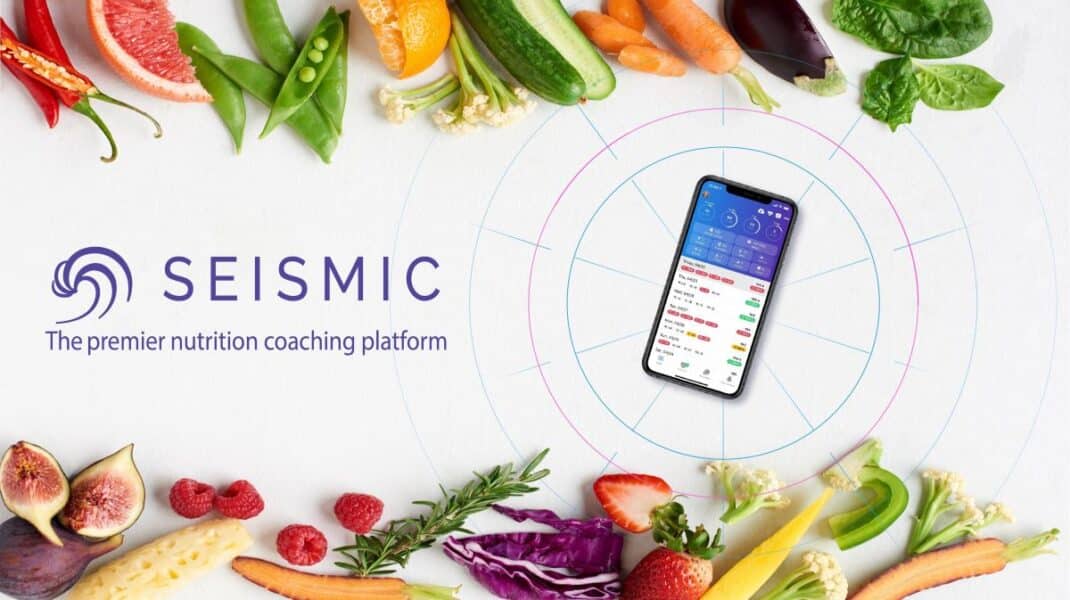Nutrition Coaching: A Primer for Health and Fitness Professionals
Nutrition: How to stay within scope of practice while using proven motivational techniques.
| Earn 1 CEC - Take Quiz

Fitness professionals should discuss nutrition with their clients.
Historically, many fitness pros have either avoided nutrition discussions for fear of straying outside their scope of practice or gone overboard by exceeding their professional limits—recommending nutritional supplements or individualized meal plans.
There is a better way: Staying within scope of practice while adopting a coaching philosophy that uses proven methods of behavior change.
The need is clear. Few Americans abide by national recommendations for a healthy diet that prevents disease, promotes health and manages weight, and many lack access to individualized dietary counseling from recognized nutrition experts like registered dietitians. It often falls to health and fitness professionals such as personal trainers, group fitness instructors and health coaches to steer people toward healthier nutrition choices.
Recognizing this reality, IDEA has expanded its education, training, resources and official stand on nutrition. IDEA defers to the American Council on Exercise’s position statement urging fitness professionals to talk nutrition with their clients (ACE 2013). Many fitness organizations offer additional training in nutrition. Clearly, fitness professionals are a key ally and resource for helping Americans to make healthy dietary choices.
Many fitness professionals have expanded their knowledge of nutrition best practices but are still unsure how to do all they can to integrate nutrition into their work while staying within their scope of practice. Furthermore, most health and fitness professionals now recognize that it’s one thing to merely recommend the right way to eat; it’s quite another to provide the coaching and support that produce meaningful health changes.
This article addresses key questions about scope of practice and coaching techniques; it also provides resources and links for further information, practice and training.
See also: Diet Culture: How It Harms Us
Nutrition Coaching 101
Nutrition coaching starts with an understanding of the science of nutrition, the key federal dietary guidelines and the methods of conveying dietary information so that it is readily understood and actionable. The coaching component requires an understanding of how to help people identify, nurture and act on their internal motivations to change their behavior.
The Nutrition Coach: Scope of Practice Defines the Role
Nutrition scope of practice is not just a matter of professional ethics. In some states it’s a matter of law, and violators can be prosecuted.
Most U.S. states regulate nutrition and dietetics with laws that provide guidelines for all health professionals who discuss nutrition with their clients. Typically, the scope of practice for registered dietitians includes individualized dietary counseling, individualized meal plans and medical nutrition therapy. More information can be found at the Academy of Nutrition & Dietetics.
Ultimately, scope of practice is determined by a combination of three factors: state laws; education, knowledge and skills; and willingness to accept responsibility for one’s actions, should something go wrong. State laws come in three forms:
Licensure. The majority of states have licensure, where people acting outside of their scope can be fined and prosecuted.
Certification. In states with certification, noncertified individuals (non-RDs for the most part) are forbidden from calling themselves nutritionists, but they can still legally practice the profession.
Registration. In the one state with registration (California), unregistered individuals should not call themselves nutritionists or dietitians, but registered exams are not given and enforcement of
registration is minimal.
The ACE position statement, which is based on a review of the current licensure laws and the activities within the scope of practice of nonlicensed professionals, shows there are many ways in which people who are not registered dietitians can support their clients’ efforts in making nutrition changes. These ways include developing cooking demonstrations and recipe exchanges, sharing handouts and informational packets, offering individual or group classes and seminars, and engaging in one-on-one encounters.
To pull it all together, a health and fitness pro who would like to master the “nutrition” side of nutrition coaching, can do the following:
- Get up to date on your own state laws. Get started at www.cdrnet.org.
- Read the Dietary Guidelines for Americans 2020-2025. Everything in there is fair game to discuss with clients.
- Use meal-planning tools based on established dietary recommendations. For example, check out Supertracker. This program can produce individualized meal plans for clients. Distributing such meal plans is within your scope of practice since they are based on and developed for implementation of the federal dietary guidelines.
- Stay on top of the latest nutrition research. Feel free to share these findings, as well as position statements from organizations like the Academy of Nutrition and Dietetics. You can also discuss published books and other reading materials with your clients. Use your discretion and be sure to share only credible and worthwhile information rooted in good science.
- Get to know a few registered dietitians in your community.
- Avoid trying to reinvent the wheel. Rely on proven methods and programs. At the least, feel free to use educational materials and information developed by physicians or dietitians. It is well within your scope to implement these methods. A few examples include the Centers for Disease Control and Prevention’s group diabetes prevention program materials, the Eat Healthy Be Active Workshop series from the U.S. Department of Agriculture, and the National Heart, Lung, and Blood Institute’s We Can! Program.
Coaching: Becoming an “Expert” Without Being “The Expert”
Nutrition coaching is not about dumping nutrition education and advice on clients, then expecting them to take all of your recommendations to heart and make meaningful and lasting dietary changes.
Rather, coaching is a process that recognizes a client’s readiness to change and receptivity to advice. Some clients come to health and fitness professionals ready to change and hungry to figure out how to use nutrition to achieve their goals. However, not everyone is at that point. Being able to identify whether clients are ready to jump right into a program or are still a little ambivalent about changing—and tailoring your approach accordingly—is a key skill for coaches to develop.
When clients are not ready to change, the coach helps them work through their ambivalence using well-established techniques like motivational interviewing.
Coaches play a different role for clients who are ready to change, helping them challenge themselves to achieve realistic but strenuous goals, while serving as a supportive guide and advocate. Coaches may also share nutritional information in an autonomy-supporting way. For example, a coach will ask permission before providing advice or a suggestion. A coach will also provide information in a way that recognizes the six key features of how adults learn best (Knowles, Holton Swanson 2011):
- The need to know. Adult learners want information with practical and immediate usefulness in their everyday lives.
- Autonomy. Adults need to feel they control how the information applies to their daily lives.
- Prior experiences. Adults build new learning on top of previous learning and experience.
- Readiness to learn. Adults want only the information they are ready to recieve.
- Orientation to learning. Adults are problem-centered. They want information that will help them solve a pressing problem in their lives.
- Motivation to learn. Most adults are driven by internal motivations, such as the wish for better quality of life, increased job satisfaction and more self-esteem. New learning should speak to one of these domains.
A Model Nutrition Coaching Session
So what exactly does a nutrition coaching package look like? Of course, the content will vary considerably from one client to the next, but many coaching sessions may follow a similar outline. Here is just one example:
- Engaging. The coach-client relationship begins with establishing a collaborative relationship. Engaging with a client includes asking open-ended questions and truly aiming to understand the client’s point of view and his or her reasons for wanting to begin the coaching relationship. This also provides an opportunity to understand a client’s big-picture goals. The process of engaging and establishing a collaborative relationship should precede any formal assessment or gathering of baseline information.
- Gathering baseline information. To help a client achieve a big-picture aim, it pays to understand the starting point. Asking the client to complete a health history, a lifestyle questionnaire and/or a food log can help with this step.
- Focusing. Here, coach and client work together to make sense of the baseline information and establish readiness to change and best next steps, depending on the client’s readiness.
- Establishing goals. A client who is ready to change can benefit substantially from setting nutrition goals via the SMART framework—specific, measurable, achievable, realistic and time-bound. Putting goals in writing and making a public statement of commitment further strengthen the change process.
- “Elicit-provide-elicit.” This three-step process is a key technique advised in motivational interviewing and is of great value across coaching processes (Miller Rollnick 2013). It means the coach first elicits by asking for permission and clarifying gaps in the client’s needs and information (“What would you like to know about in order to achieve this goal?” or “What information gaps may interfere with your ability to move forward?”). Then the coach may provide information, keeping in mind the six principles of adult learning noted above. Finally, the coach elicits once more, asking the client—through open-ended questions and reflections—how he or she understands, interprets or responds to the information.
See also: The Nutrition and Mental Health Connection
Next Steps
As health and fitness professionals expand their scope and their impact in communities, gaining skills and expertise in nutrition coaching is becoming a needed and impactful strategy. See the “Resources” sidebar for more information and resources to help you get started.
William R. Miller and Stephen Rollnick, founders of motivational interviewing (MI), define it as “a collaborative goal-oriented style of communication with particular attention to the language of change. It is designed to strengthen personal motivation and commitment to a specific goal by eliciting and exploring the person’s own reasons for change within an atmosphere of acceptance and compassion” (Miller & Rollnick 2013).
MI relies heavily on four key communication skills—open-ended questions, affirmations, reflections and summarizing (OARS)—and proceeds through a series of four phases: engaging, focusing, evoking and planning. For more information, check out Miller and Rollnick’s book Motivational Interviewing: Helping People Change (Guilford 2013).
These excellent resources can help you get started with a career or business that includes nutrition coaching:
Academy of Nutrition and Dietetics (www.eatright.org). The site provides credible, evidence-based nutrition information and resources for health professionals and the public. Some fitness professionals who are not registered dietitians are eligible to join through the Academy’s affiliate membership program, which offers additional resources and benefits.
American Council on Exercise (www.acefitness.org). ACE resources include specialized training certifications or certificate programs in health coaching (the only NCCA-accredited health coach credential), fitness nutrition and behavior change. ACE also provides free access to the latest research and information related to nutrition and coaching through its blogs, infographics, webinars and other free resources**.
IDEA (www.ideafit.com). IDEA offers a plethora of resources to help health and fitness professionals launch and nurture careers in fitness, nutrition and coaching. Check out IDEA’s registry of training programs at www.ideafit.com/fitness-certifications.
MINT (www.motivationalinterviewing.org). The official site of the founders of Motivational Interviewing provides access to resources and training on developing and perfecting motivational interviewing skills.
Wellcoaches® (wellcoachesschool.com). Wellcoaches provides health and lifestyle coach training opportunities and resources.
**Disclosure: Author participated in the development and evaluation of the ACE Fitness Nutrition Specialty course and Behavior Change Specialist course, and authored several chapters of the ACE Health Coach Manual (ACE 2013). She also helped draft the ACE position statement on nutrition for health and fitness professionals.
References
ACE (American Council for Exercise). 2013. A call to lead: Why fitness professionals should discuss nutrition with their clients. Accessed Feb. 9, 2015. www.acefitness.org/prosourcearticle/3399/a-call-to-lead-why-fitness-professionals.
Knowles, M.S., Holton, E.F., & Swanson, R.A. 2011. The Adult Learner: The Definitive Classic in Adult Education and Human Resource Development (7th ed.). New York: Taylor & Francis.
Miller, W., & Rollnick, S. 2013. Motivational Interviewing: Helping People Change (3rd ed.). New York: Guilford.
Natalie Digate Muth, MD, MPH, RD
"Natalie Digate Muth, MD, MPH, RDN, FAAP, is a board-certified pediatrician and obesity medicine physician, registered dietitian and health coach. She practices general pediatrics with a focus on healthy family routines, nutrition, physical activity and behavior change in North County, San Diego. She also serves as the senior advisor for healthcare solutions at the American Council on Exercise. Natalie is the author of five books and is committed to helping every child and family thrive. She is a strong advocate for systems and communities that support prevention and wellness across the lifespan, beginning at 9 months of age."





